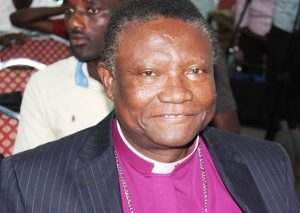
PASTORS ARE commonly referred to as CLERGY while the multitude of believers are referred to as LAITY. This puts pastors in one unique group and the rest of the Christian believers in another unique group, thereby creating a division between the Church.
But what do the words, “clergy” and “laity” mean?Does God have a special group of children called clergy and another group called laity?
It is important that the terms, “clergy” and “laity” are clearly explained for the sake of those who might not know. Clergy and laity are derived from Greek words, “kleros” and “Laos”.
According to George B. Wilson, “the word clergy has no basic relation to religion or the holy. The Oxford English Dictionary informs us that a kleros was a “lot, an allotment, a piece of land, and estate, a heritage…At root, clergy are propertied, people with an inheritance.”
Wilson continues that “this secular meaning of kleros was gradually transformed by the Christian community. The result is that most Christian churches understand the clergy today as persons functioning within the priesthood of all the people but ordained, or set aside, for particular service, especially in connection with Eucharistic ministry.
“That is not to say that the early church did not recognise certain individuals as exercising particular forms of service in the community. It did. But the practice of grouping them together under a single collective noun, as kleros, and thereby distinguishing them from an undifferentiated mass of members is a later phenomenon, reflecting a later stage of societal development,” he explained.
According to him, “prior to that stage of development it would also be a mistake to refer to anyone as laity. The paradox is that there was no collection called laity until there was a class called clergy.”
Moreover, Michael Papesh sees clergy as a group of people within the Christian faith community designated for spiritual and leadership functions. Regarding laity, he writes that the first use of the word laity, in contrast to clergy, appears in Christian literature near the end of First Century in the First letter from Clement, sent by a member of the College of overseers from the church at Rome to the church at Corinth…the distinction between clergy and laity becomes fixed through the fourth and fifth centuries and remains today.
However, Prof. Emmanuel Asante, in his book, explains that “the distinct categories of lay and clergy are being questioned today, more so, because the Greek word, Laos, from which the English, laity, derives, means quite simply, people.”
He continues, “in the secular Greek, the expression was used in reference to the population of city-states. In biblical Greek, Laos was intended to mean the whole people – that is, a people who are sacred, as district from those who are not. Laos then was an inclusive word, denoting all the people of God.
Prof. Asante quotes Robinson and makes the point that, though the two words, clergy and laity, appear in the New Testament, strange to say, they denote the same people, not different people.
He further quotes Lightfoot as writing that “the only priests under the Gospel, designated as such in the N.T., are the saints, the members of the Christian brotherhood.
Consequently, the former Methodist Bishop concludes by stating that “all Christians are God’s laity and all are God’s clergy.
This means that clergy are not special and above the laity as many have been made to believe over the years. Both clergy and laity are all children of God in Christ Jesus with equal standing before God.
By James Quansah.
Thank you for reading. You may support this ministry financially by sending your donation to MTN MERCHANT ID: 951275 or MOBILE MONEY NUMBER: 05301659. God bless you.
James Quansah is the Executive Director of Christ-Conscious Leadership Centre (CLC) and lead Pastor of End-Time Christ’s Commissioners (ECC), Kumasi, Ghana. James is also a journalist by profession. He is married with four children.
 clcgh.org Building The Capacity Of Christian Leaders, Equipping The Saints For The Work Of Ministry, Redirecting Straying Christians To The Sound Knowledge Of Christ
clcgh.org Building The Capacity Of Christian Leaders, Equipping The Saints For The Work Of Ministry, Redirecting Straying Christians To The Sound Knowledge Of Christ



